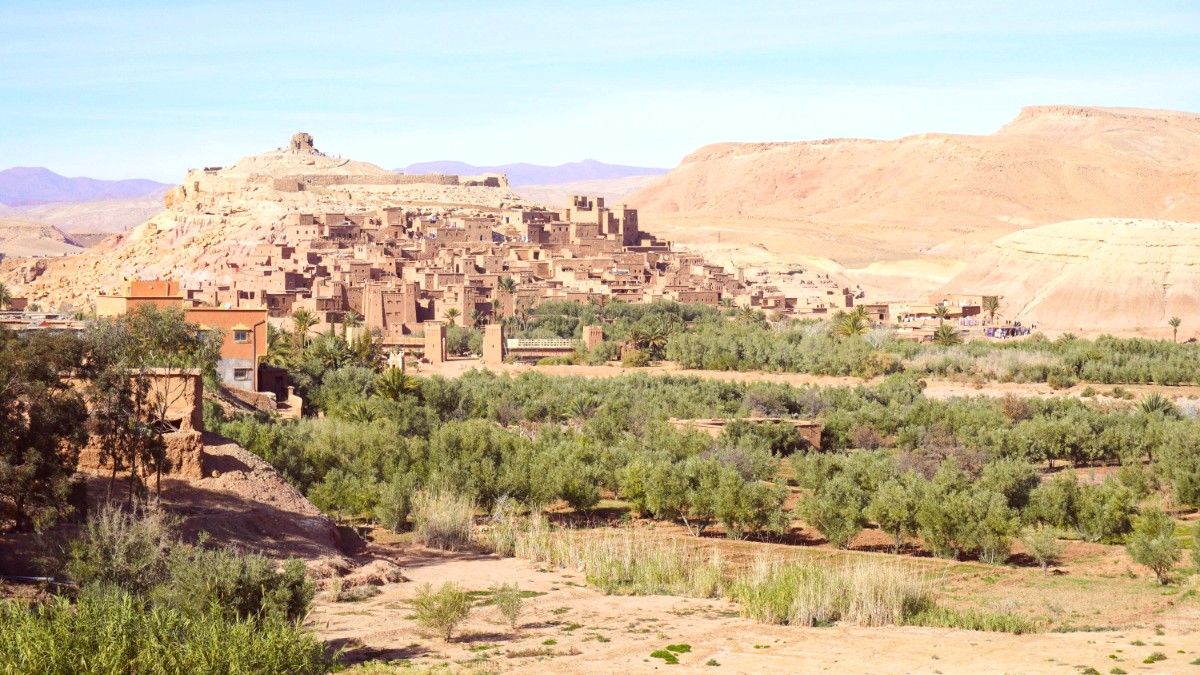
Morocco
The surrounding desert and mountain areas are ecologically sensitive. Efforts continue to safeguard biodiversity, notably in the Atlas Mountains and delicate desert oases. Respect designated areas.
Recycling infrastructure in Ouarzazate displays limitations compared to more developed nations. Waste management displays challenges. Minimize your waste by refusing single-use plastics.
Morocco faces water stress, and Ouarzazate, in an arid region, experiences significant water scarcity. Minimize water usage. Take shorter showers, turn off taps when not directly using water.
Responsible travel calls for cultural sensitivity. Choose tours that respect and highlight traditional knowledge.
Learn a few basic Arabic or French phrases. Show patience, politeness, and maintain an open mind. A smile and respectful demeanor greatly contribute to positive interactions.
Always ask permission before taking photos of people, notably women and children. A direct "no" requires respect. Show particular sensitivity in private homes, religious settings, or when children are present. Avoid photographing those clearly working and not performing for tourists without explicit consent.
Dress modestly (shoulders and knees covered) when visiting religious sites. Remove your shoes before entering mosques or prayer areas. Do not disrupt those praying.
Non-Muslims generally lack permission inside mosque prayer halls. Respect moments of prayer and silence. Observe signs or instructions from local mosque attendants.
Look for accommodations that promote water and energy saving (e.g., solar power, water recycling systems). Consider booking eco-friendly stays via Ecobnb.
Find Eco StaysFor outdoor pursuits, consider gear from sustainable retailers like Patagonia. Select tour operators such as G Adventures that practice ethical tourism.
Shop SustainablyYour mindful choices make a difference.
Your spending choices directly shape the local economy.
Seek opportunities to support local communities directly. Stay in locally-owned guesthouses, dine at local restaurants, and hire local guides. Some desert tours may incorporate visits to Berber villages where local products are sold.
Look for products from artisan cooperatives. These organizations often maintain fair wages and working conditions for craftspeople. When bargaining in souks, bargain fairly. Avoid driving prices down excessively.
Prioritize local shops, restaurants, and guides over international chains when feasible. This practice circulates your tourism dollars within the local economy, thereby fostering jobs and sustaining families.
Dine at small, independent restaurants to experience authentic Moroccan cuisine and support local families.
Hire local guides for excursions; their knowledge enriches your visit, and your payment directly benefits them.
Buy souvenirs and goods from local markets and artisans, rather than large chain stores.
Avoid giving money directly to children, which may encourage begging over schooling. If you wish to donate, choose reputable local charities. Be mindful of animal welfare; select tour operators who treat their animals well and do not overload them.